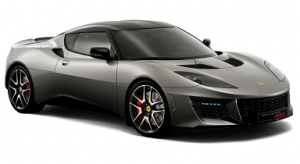HFQ® Production in UK
 The increasing demand for more fuel efficient vehicles in order to reduce Carbon Dioxide (CO2) emissions is a significant challenge for the automotive industry. Cars are responsible for approximately 12% of the total European Union (EU) emission of CO2, the main greenhouse gas. Weight reduction is the most effective route to achieving mandatory EU legislation for future emission targets. In addition, light-weighting is the key to achieving world class vehicle driving dynamics, as characterised by the high performance sports cars produced by Lotus.
The increasing demand for more fuel efficient vehicles in order to reduce Carbon Dioxide (CO2) emissions is a significant challenge for the automotive industry. Cars are responsible for approximately 12% of the total European Union (EU) emission of CO2, the main greenhouse gas. Weight reduction is the most effective route to achieving mandatory EU legislation for future emission targets. In addition, light-weighting is the key to achieving world class vehicle driving dynamics, as characterised by the high performance sports cars produced by Lotus.
HFQ® forming technology explained
Automotive partner Lotus has supported the development of the patented HFQ process with Imperial College, Impression Technologies and PAB Coventry to achieve a highly innovative technology for the production of lightweight, complex aluminium pressings.
Lotus first recognised the potential of HFQ® several years ago as a process which could enable a weight reduction for automotive aluminium chassis, body and closure structures, in addition to aerospace, rail and military applications.
HFQ® is a hot forming process for aluminium which enables several benefits when compared against cold stamping, the most significant of which is improved formability of the material allowing the manufacture of extremely complex, single piece deep drawn panels which would otherwise be infeasible using conventional stamping methods. In addition to the improved formability, post forming artificial ageing treatment ensures the aluminium pressing achieves full strength mechanical properties, enabling a potential reduction in panel thickness leading to vehicle mass reduction.
The first stage is to heat an aluminium sheet in a furnace to reach the solution heat treatment temperature of the material. The blank is cut from a sheet of standard heat treatable grade material, using conventional equipment and is transferred to a press and formed between a cold punch and die tool.
The tools remain closed to allow rapid cooling of the formed part until the pressing is quenched. Quenching freezes the microstructure of the aluminium in a supersaturated solid solution state. The material can then be artificially aged to give optimum strength.
® HFQ is a registered trademark for Impression Technologies Ltd. Impression Technologies are the owners of the HFQ process and know-how.
The final artificial ageing time required to achieve peak strength is dependent on the strain attained during the forming process. The HFQ® thermo-mechanical processing cycle has been developed to ensure that the final microstructure-mechanical property relationship enables full alloy strength.
HFQ® forming technology benefits and applications
The HFQ® process enables high elongation levels of up 70% at elevated temperature, allowing extremely deep drawn aluminium pressings to be manufactured, which until now would be infeasible using conventional cold forming.
Uniaxial tensile tests conducted on samples removed from HFQ® panels gave maximum yield strength of 304 MPa.
Typical examples of applications where HFQ® panels will add significant benefit include primary vehicle structures such as door inner panels, bulkhead cross members, A– and
B–pillar reinforcements, which offer forming challenges due to their complex geometry, particularly with respect to aluminium.
In addition, these panels demand a high level of strength leading to a requirement for multiple pressings, often including advanced high strength steels or hot pressed steels in order to meet vehicle crash targets.
Potential mass reduction opportunities for HFQ® exist by the deletion of pressings through improved part integration and by gauge reduction for structures where strength is a key factor.
Aluminium is increasingly being incorporated into vehicle structures as manufacturers strive to reduce vehicle weight in order to meet performance and emission targets.
HFQ® provides a new enabling manufacturing method for the production of complex high strength aluminium pressings, with the potential to further reduce mass of both steel and conventionally pressed aluminium structures.
PAB is proud to be working closely with Impression Technologies Ltd as they continue to develop the application of their revolutionary HFQ® technology. We are now applying this technology to real-life manufacturing processes within the automotive sector with impressive results.
For more information on using HFQ® within your project, please contact us.
